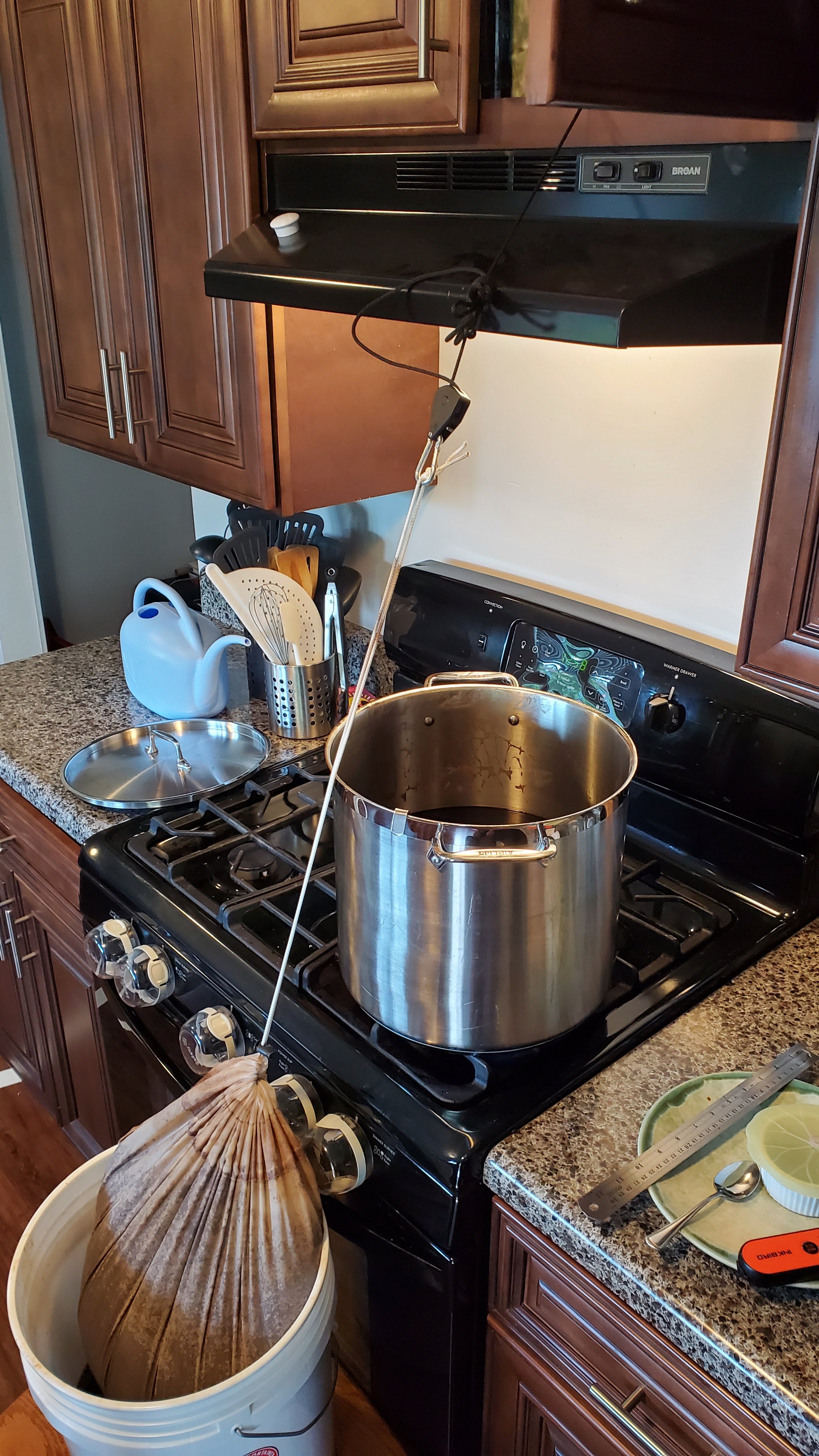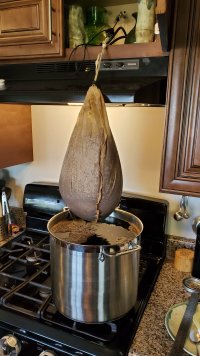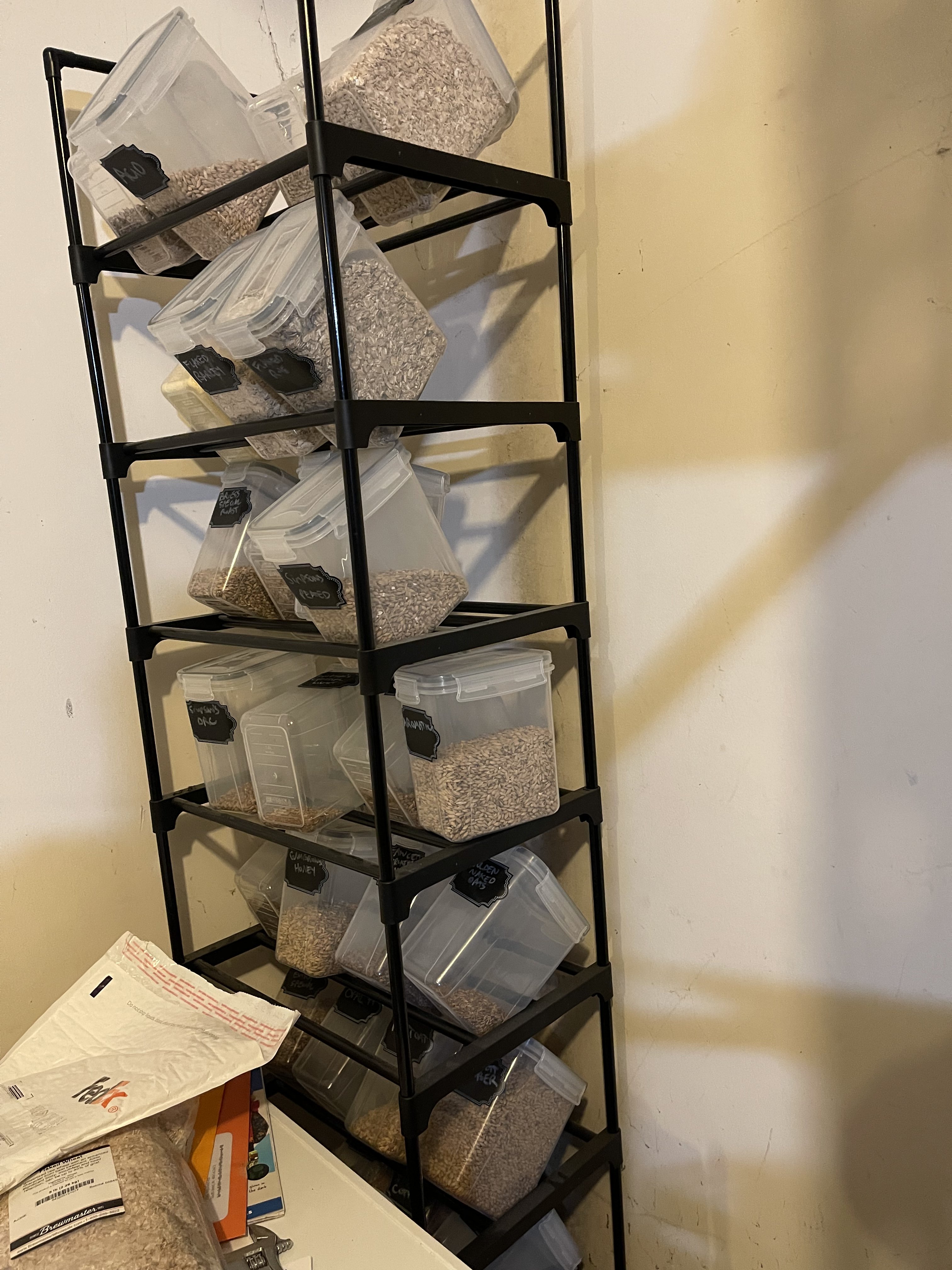I'm contemplating a small-batch BIAB, but all I've got to work with is my 5.5 gallon pot, and a separate 2 gallon pot.
It looks like I should be able to mash up to 10 lbs with a little room to spare, if I'm understanding https://brewgr.com/calculators/mash-tun-capacity correctly,. and to be honest that seems like a lot more than I thought would be possible. What am I missing? Also worth noting, my crappy stove-top can just barely boil 3 gallons.
It looks like I should be able to mash up to 10 lbs with a little room to spare, if I'm understanding https://brewgr.com/calculators/mash-tun-capacity correctly,. and to be honest that seems like a lot more than I thought would be possible. What am I missing? Also worth noting, my crappy stove-top can just barely boil 3 gallons.










